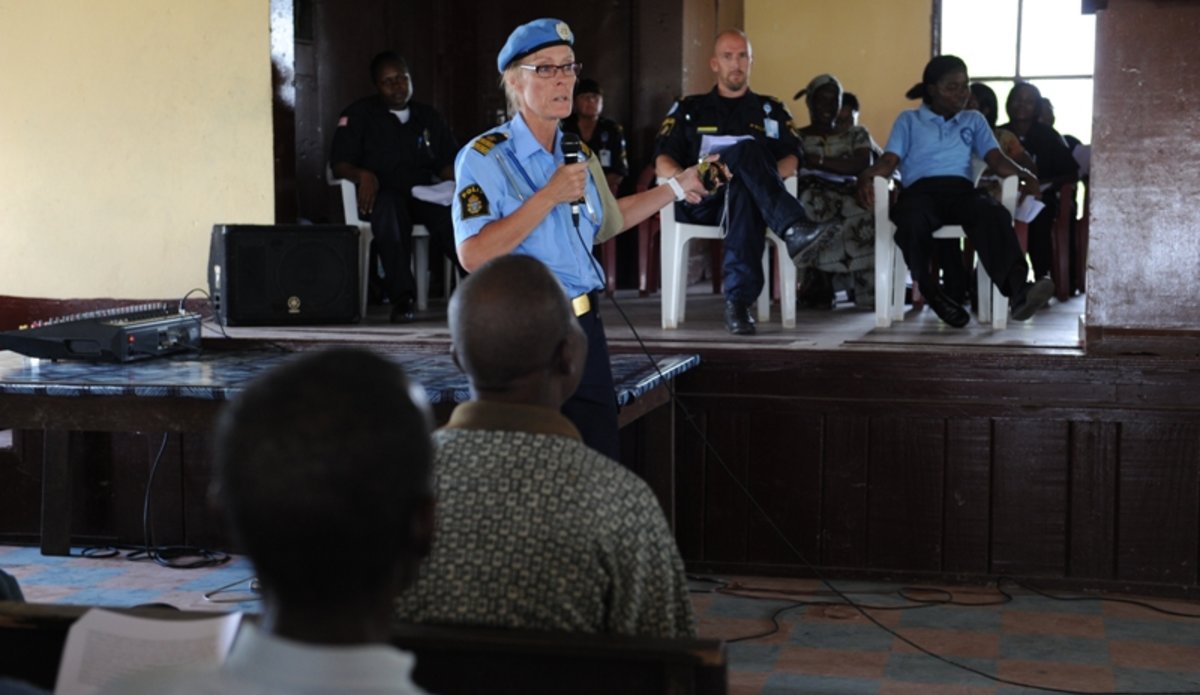Spotlight on Liberia’s forensic gap in rape cases
Kakata, Margibi County: On Saturday 3 November, six women police officers from the Liberian National Police (LNP), in collaboration with members of UN Police (UNPOL) from Sweden, held a public workshop on rape in Kakata, in Liberia’s Margibi County. Speakers explained what happens when a woman or child reports an assault -- from police and forensic investigations, to medical examinations and reports, through to the eventual court case. The audience was composed of both Liberian men and women.
The LNP and UNPOL continue to work together on the forensic aspect of rape investigations, including the use of DNA and more scientific modes of inquiry. This should provide more solid, admissible evidence for a fair trial and, in turn, help enhance public confidence in Liberia’s criminal justice system.
Encouraging the public -- especially families -- to report gender-based crime was a key objective of the day. “In the past, we’re not respecting women,” noted Patrick Smith, the LNP Regional Commander.
Aaron Wreh, Chairman of the Centre for Child Rights and Peacebuilding, a non-governmental organization, emphasized the importance of this. “In Kakata, a 16-year-old girl was raped by a relative and the parents compromised the case,” he explained. “The girl died, possibly because her parents delayed in taking her to the hospital.” The rapist is now in prison but no-one, of course, can bring back the girl.
With more awareness among the population on what to do in cases of rape, it is hoped that there will be better care for victims and fair trials for the perpetrators. That is what UNPOL, in partnership with the LNP, is trying to achieve through such workshops.
 UN
UN United Nations Peacekeeping
United Nations Peacekeeping





